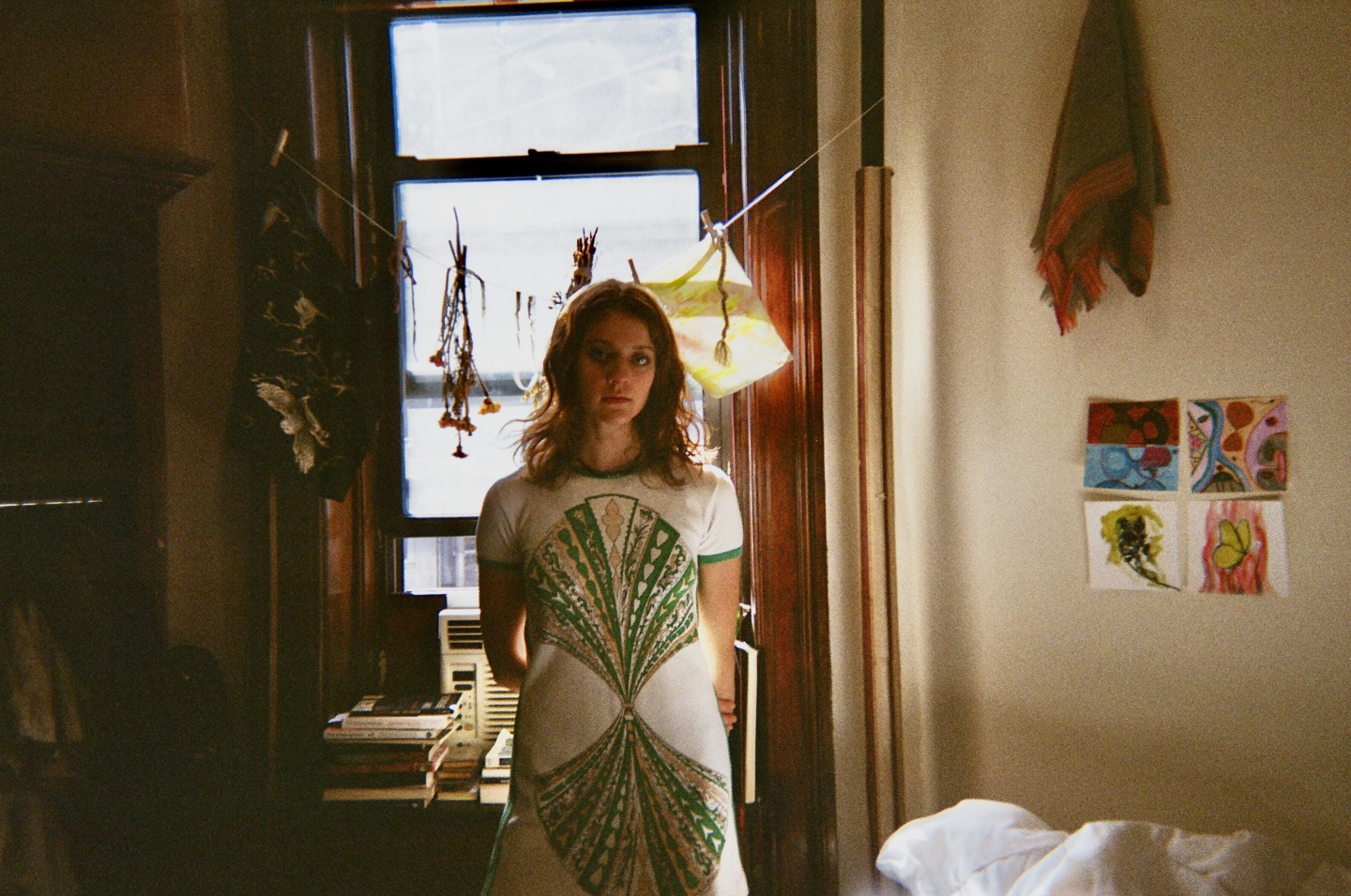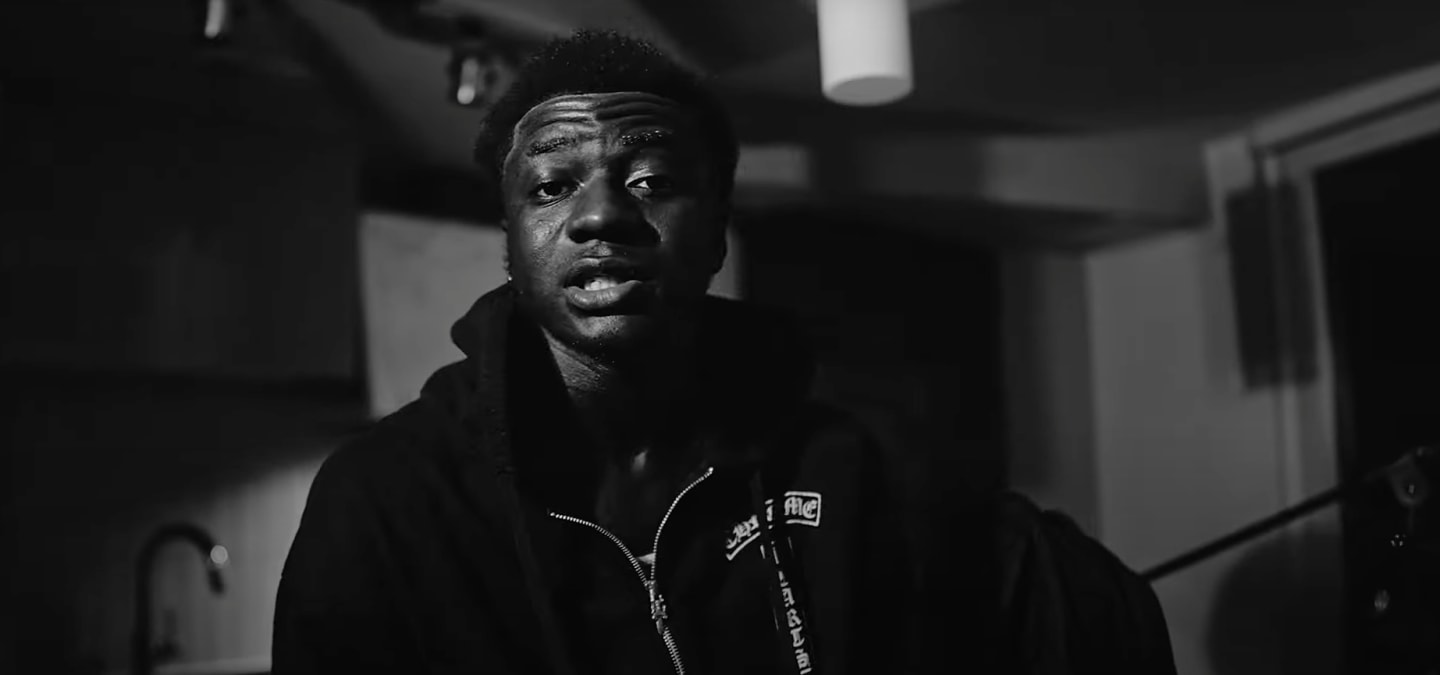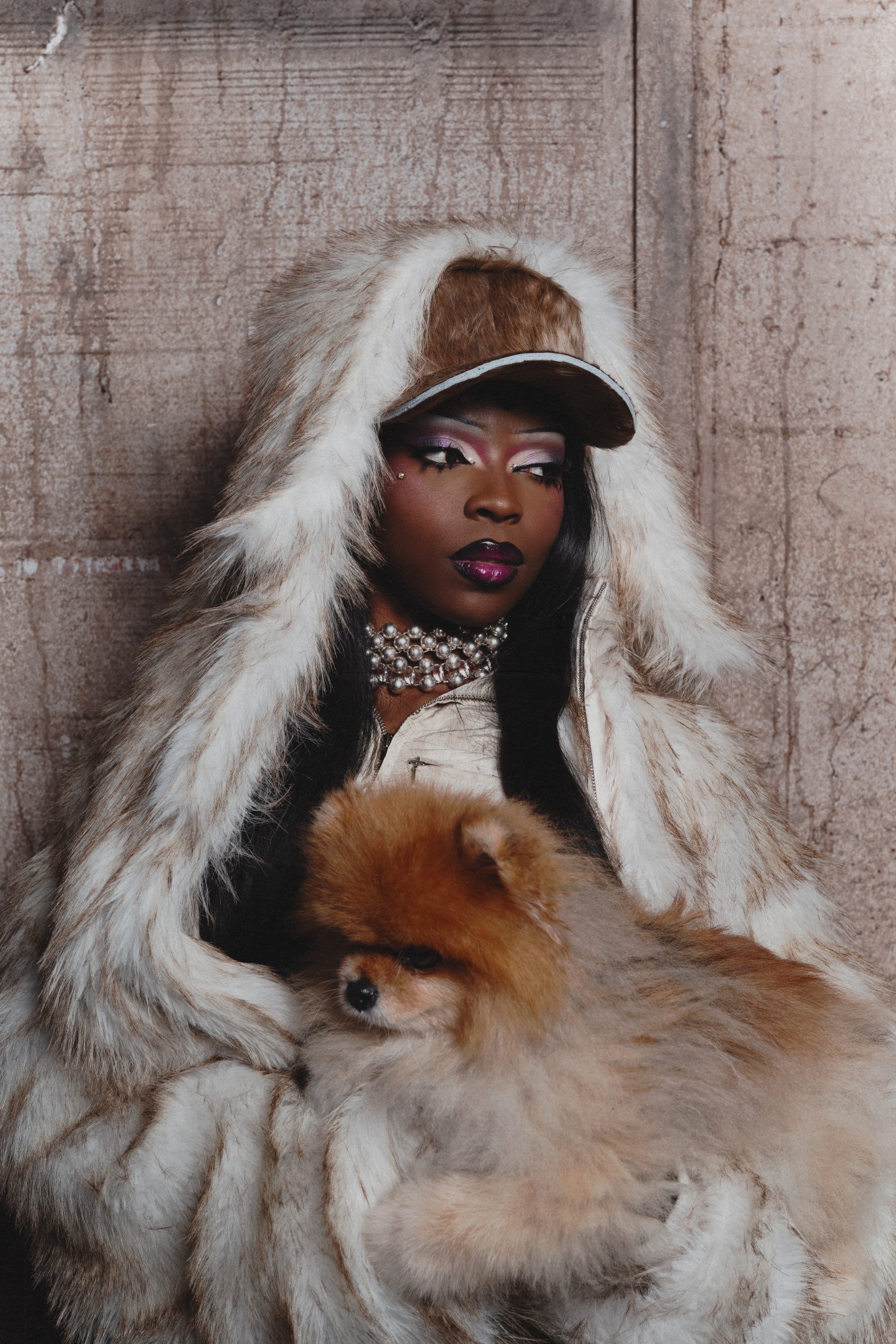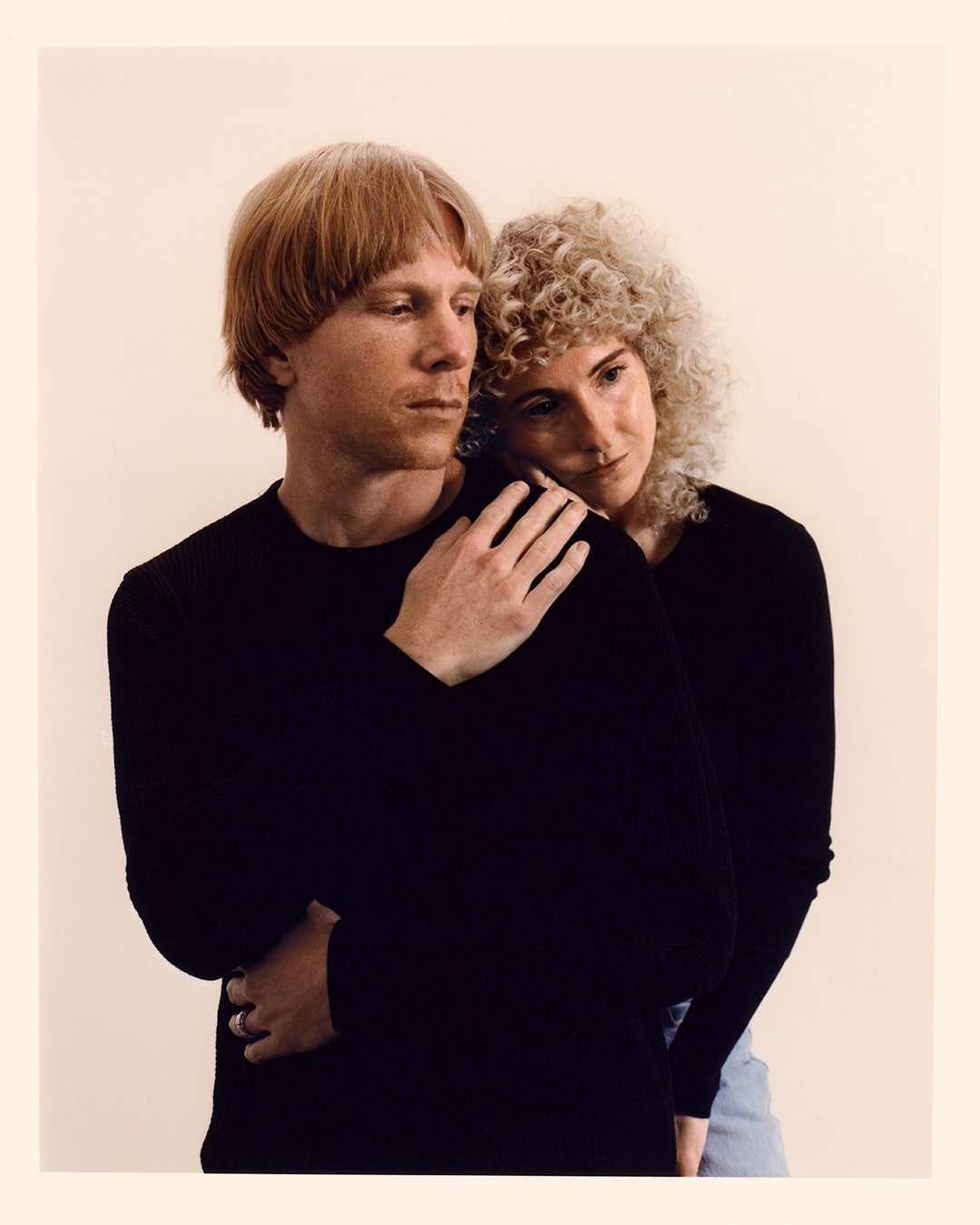The Opener is The FADER’s short-form profile series of casual conversations with exciting new artists.
Allegra Krieger wasn’t sure she’d ever make it back into her apartment. The fire that consumed her Manhattan building last summer took the lives of four of her neighbors and displaced the rest. She spent more than a year without a permanent home, moving between her city-provided temporary accommodation and the road, where she played the songs that now comprise her fourth album, Art of The Unseen Infinity Machine.
Today the white walls of her bedroom are full of prints and paintings, a small shelf is cluttered with coffee mugs and water glasses, and Krieger seems fully at home. “I’m really grateful,” she says into the laptop perched by her bed. “It could have just gone so many different directions.”
Art of the Unseen Infinity Machine — out tomorrow, September 13, via Double Double Whammy — was written on either side of the fire. Its presence is most keenly felt on “One or The Other,” where Krieger sings about her neighbor, “Nancy from the second floor,” who “died on her bed with an open door / She tried to get out but must have turned around / Couldn’t fight that light anymore.” The track crescendos at the end, and Krieger sings near the back of her throat, as though suppressing tears: “What do you know about living? What do you know about dying? Other than you just do what you do / It’s one or the other…”
Art of the Unseen Infinity Machine by Allegra Krieger
That one was written from her temporary home in the fire’s immediate aftermath. “There was some sense of urgency to write because when I got my guitar back, I had a place to sit and work through some immediate feelings,” she says. “After that, it was harder for me to write. I had a really strong attachment to my apartment as a creative space.”
Krieger had never really confronted life-and-death stakes in her music before. Her three previous albums — 2020’s The Joys of Forgetting, 2022’s Precious Thing, and 2023’s breakthrough I Keep My Feet on the Fragile Plane — were more concerned with wresting meaning from humble, everyday details: “domestic life, going to work, what you see on your walk home from work.” On Art of the Unseen Infinity Machine, she says, “the themes feel more outward-reaching.”

Tonje Thilesen
/
Press
Growing up between Jacksonville, Florida, and Reading, Pennsylvania, Krieger was raised Catholic and started writing songs in the third grade; music and religion inspired a similar awe. She started to question her faith in high school, but that worldview isn’t something she can just shake off. She’s been thinking about that lately, she says, while listening to Sufjan Stevens’s Carrie & Lowell.
“I wrote something recently that felt like speaking to the God that you once prayed to every night,” she says. “That’s still very much a part of the way that my brain works naturally. I also have an equally strong pull towards nihilism, but in a comforting way. I feel comforted also by the fact that maybe nothing matters.”
That’s clearest on “Where You Want to Go,” which has a whisper-quiet grandeur that recalls middle-era Elliott Smith. “If you don’t like the way that it’s going then maybe just / Sit back and wait for the sky / To come crashing over / In the blink of an eye.”
Krieger lays it out plainly on our call: “Fuck where you’re going, forget from where you came,” she says. “It’s about embracing the almost ecstatic energy that can come into your life when you just stop worrying and embrace the heights and the depths of your emotion.”
You can hear it in the mix too. Art of the Unseen Infinity Machine was recorded live in the studio across four days. It is unvarnished, preserving the warmth of the guitars on “Never Arriving” and the daydreamy electric folk of “I’m So Happy I Cannot Face Tomorrow.” The closer, “New Mexico,” is just Krieger alone above two delicate electric guitars, and it’s more arresting for that intimacy.
It represents a significant shift in her outlook. “I think it’s growth, getting older,” she says. “Maybe coming into contact with more chaos.” Krieger shuffles around a little on the bed she had to flee from last summer.
“But there’s always chaos,” she says. “There’s always the unexpected hanging right above you. Sometimes it’s really beautiful and exciting and positive, and sometimes it’s really dark and negative and destructive. That’s just how it goes.”




